Search the Special Collections and Archives Portal
Search Results
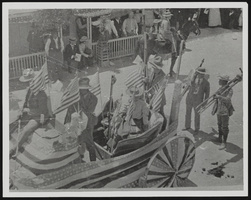
Close up of people with flags on a float for the parade: photographic print
Date
1906-07-04
Archival Collection
Description
William Hillman Shockley seated in front, S.K. Bradford standing, and May Bradford Shockley seated in rear of carriage during a Fourth of July Parade, 1906 on the Bradford & Bradford float.
Image
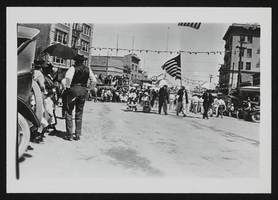
People marching down the street with an American flag: photographic print
Date
1915 (year approximate) to 1918 (year approximate)
Archival Collection
Description
Parade on Main Street. Two women with babies in strollers lead the parade along with a man waving an American flag.
Image
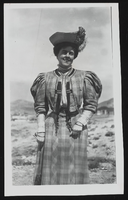
Kate Jackson portrait in the desert: photographic print
Date
1905 (year approximate)
Archival Collection
Description
Kate Jackson, the sister-in-law of Blanch Jackson, poses for a portrait in the desert, circa 1905.
Image
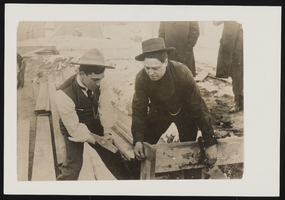
Two unidentified individuals in the desert: photographic print
Date
1900 (year approximate) to 1915 (year approximate)
Archival Collection
Description
Two men in hats work with wood and sledgehammers. Others are behind them, location unknown.
Image
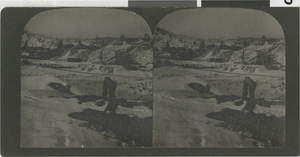
Photograph of mining views at night, Goldfield, Nevada, circa 1903
Date
1900 to 1930
Archival Collection
Description
Stereoview of Goldfield, Nevada taken by Olaf P. Larson. The images are mining views taken at night.
Image
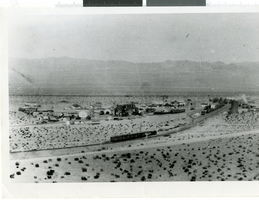
Photograph of Ludlow Yard, Nevada, 1912
Date
1912
Archival Collection
Description
Transcribed from behind photograph, "Ludlow Yards of Tonapah and Tidewater Railroad, Santa Fe mainline through center of photograph, Ludlow and Southern at top right (smoke plume)."
Image
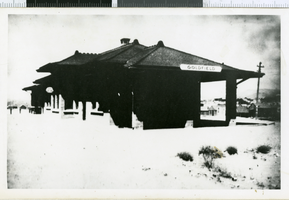
Postcard with photograph of Goldfield railroad station, Nevada, 1920
Date
1920
Archival Collection
Description
Transcribed from behind photograph, "Las Vegas and Tonapah Railroad Station in Goldfield, Nevada."
Image
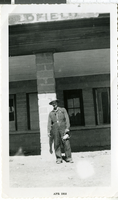
Photograph of railroad station in Goldfield, Nevada, April, 1958
Date
1958-04
Archival Collection
Description
A picture of an unidentified worker standing in front of Las Vegas and Tonapah Stations in Goldfield, Nevada.
Image
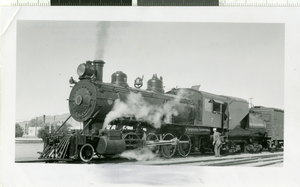
Photograph of railroad train at Death Valley Junction, California, 1934
Date
1934
Archival Collection
Description
Transcribed from behind photograph, "Tonapah and Tidewater no. 7 at Death Valley Junction heading south."
Image
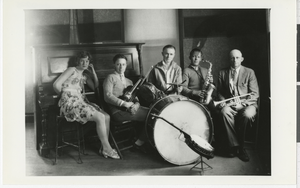
Photograph of LVHS Band, Las Vegas (Nev.), circa 1920
Date
1919 to 1921
Archival Collection
Description
Las Vegas High School Band poses for a picture with their instruments. Walter Long is on the far right.
Image
Pagination
Refine my results
Content Type
Creator or Contributor
Subject
Archival Collection
Digital Project
Resource Type
Year
Material Type
Place
Language
Records Classification
